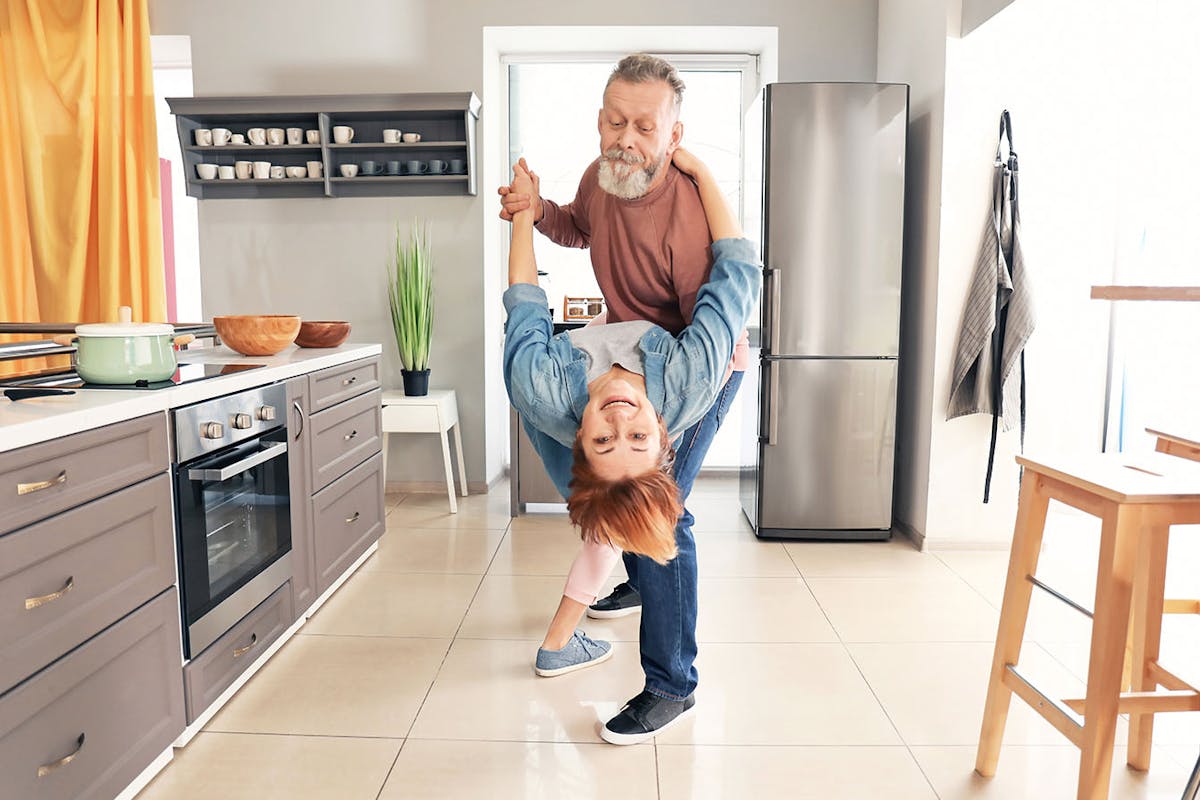Fall Prevention: 5 Steps to Better Balance

Falls are the leading cause of injury and serious disability among seniors. The statistics on falls among elders can be startling. One in four older adults experiences a fall each year. A senior is treated in a hospital emergency room every 11 seconds for injuries caused by a fall. An older adult loses their life every 19 minutes as a result of a fall.
What can you do to improve your balance and lower your personal risk for experiencing a fall?
We have some suggestions you can explore starting today.
5 Ways to Avoid Falls and Protect Mobility
1. Exercise regularly and stay strong
Most of us know that exercise is essential for living a longer, healthier life. In addition to lowering your risk for health issues like cancer, depression, and diabetes, it also helps manage weight, blood pressure, and cholesterol. Exercise is also crucial for maintaining core strength, which improves balance. It increases flexibility and helps you build stamina, too.
An older adult’s exercise plan should include aerobic activity, stretching, and strength training. It’s a combination that allows you to maintain muscle mass, heart health, and overall strength. Swimming, walking, biking, and chair yoga are senior-friendly forms of exercise to consider. Other good activities to try are light handheld weights and resistance bands. One resource you might find helpful in getting started is a guide called Growing Stronger from the Centers for Disease Control and Prevention.
As is true of any new fitness program, talk with your doctor before getting started.
2. Keep moving
When a senior has a fear of falling, which is especially common for those who have already experienced a fall, the temptation is to limit physical activity. Many believe it lowers the risk for taking another tumble. A less active lifestyle, however, can actually increase your risk for falls. That’s because being sedentary causes reduced muscle mass and a weakened core. It also leads to decreased flexibility and balance problems.
Instead of spending all your time on your computer or device or watching television for long periods of time, get up and move about the house every hour. Take a walk outdoors a few times a day, weather permitting. March in place in the living room. Invest in a recumbent bike and pedal away to your favorite morning show. Wander around the house or yard as you talk on the phone. Your overall goal is to monitor and limit how much time you spend sitting.
3. Make nutrition a priority
Many people are surprised to learn the important role that nutrition plays in fall prevention. Poor nutrition increases a senior’s risk for falls. Focus on lean protein, healthy grains, fruits, and vegetables, which are believed to be the essentials of a healthy diet.
Two useful sources of information on how to eat well as you grow older are ChooseMyPlate from the U.S. Department of Agriculture and Healthy Eating from the National Institute on Aging.
4. Visit the eye doctor every year
Vision loss also plays a role in fall prevention. Not everyone realizes the importance of a yearly vision exam. By developing a good relationship with an ophthalmologist and scheduling a checkup each year, an older adult can lower their risk of not only developing a serious vision issue but also experiencing a fall. Vision problems, such as cataracts and changes in eyesight, make the odds of a fall significantly higher.
5. Conduct a home safety audit
For seniors who are a little unsteady on their feet, even seemingly small issues can lead to disaster. A tear or bump in the carpeting, an uneven stair tread, or a poorly placed throw rug can all lead to a fall. Poor lighting is another risk factor. A good way to identify potential problems is to conduct a home safety audit. You can do one yourself or hire an occupational or physical therapist to assist you. If you opt to do it on your own, download this home fall-prevention checklist to make it easier to conduct a thorough assessment.
Invest in a Mobile Emergency Alert System
If you or an aging parent lives alone, a mobile emergency alert system can give you peace of mind. Should you or your loved one experience a fall, help can be summoned from wherever you are, indoors or out. Call 1-844-203-5617 today for more details!